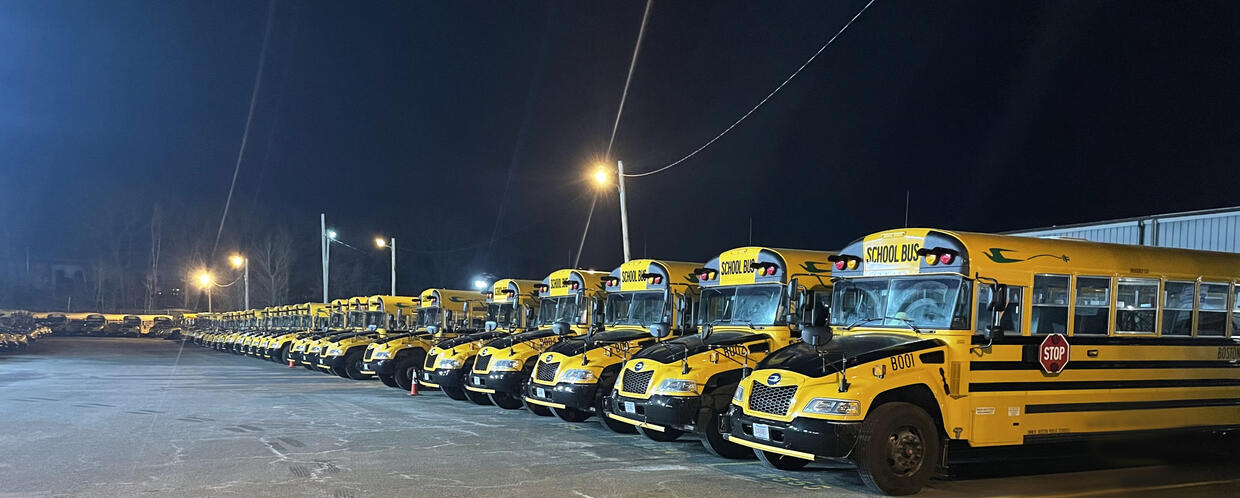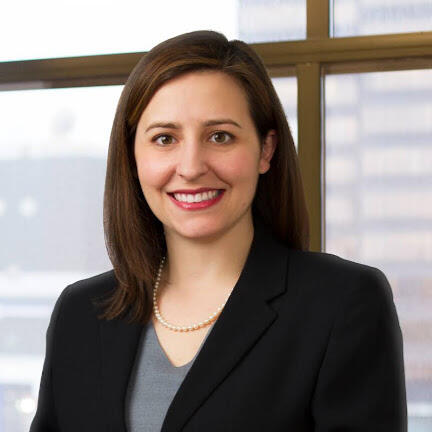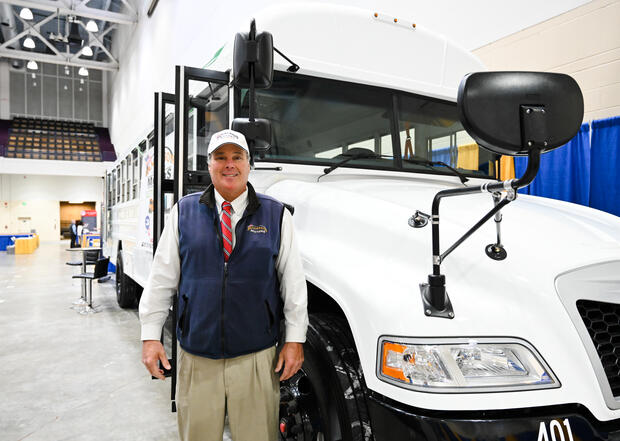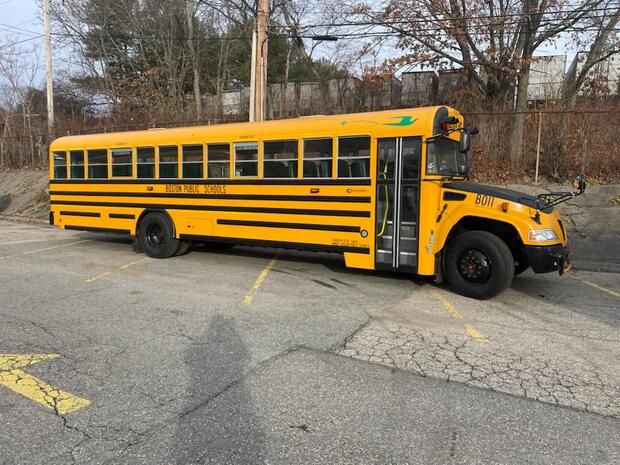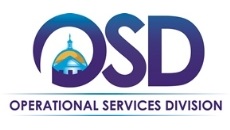- Operational Services Division
IN FEBRUARY, THE CITY OF BOSTON WELCOMED the newest additions to its fleet of school buses for Boston Public Schools — 20 Blue Bird Vision electric school buses, purchased through Statewide Contract VEH111: Heavy-Duty Vehicles, Road Maintenance and Construction Equipment. This purchase represents the City’s first step to convert its entire fleet of school buses to electric by 2030.
Jacqueline “Jackie” Hayes, Deputy Director of Transportation, Department of Transportation for Boston Public Schools (BPS DOT), led the charge for this pilot program purchase. “In my role, I work with and manage vendors. The City has been working with Statewide Contractor Anderson Motors for 10 years to manage our school bus fleet and we relied on that relationship to make this purchase,” Jackie stated. “Being on the ground floor with Boston Public Schools and the City
of Boston to initiate this pilot project and see it through to this recent deployment is something special for all our team members who made this a success,” said Jim Anderson, Vice President of Anderson Blue Bird Bus Sales of New England. “The Boston Public Schools’ transition from diesel to propane to an electric-powered fleet demonstrates the commitment the City has undertaken to provide a cleaner, more sustainable environment within the City’s boundaries.”
When asked about the purchasing process, Jackie explained, “Due to the infrastructure build out needing to be in place for charging before the buses arrived, there was a long lead time. We placed the order for the 20 buses in April 2022 and they were delivered in February 2023. All 20 electric school buses were deployed following the February school vacation week,” she continued.
While the students were on school vacation, 30 school bus drivers (includes 10 standby drivers) attended training to learn how to operate the new electric buses. Training was provided by the bus vendor and the vendor that sold the chargers and charging software. According to Jackie, “BPS DOT utilized a train-the-trainer model, working to increase on-the-ground knowledge and long-term training capacity in partnership with direct, targeted support from our dealer to our drivers for the first few weeks of the pilot. For our maintenance and management teams, the training included basics of how to plug the bus into the charging stations and precondition the vehicle for various weather conditions, as well as an overview of driving best practices. For drivers, the training focused on driving practices to maximize battery usage, and braking techniques which
also help regenerate battery life. Finally, the drivers were able to practice driving the buses on their actual routes.”
According to Jackie, “Range anxiety is a common concern, but the training and on the road driving experience helped drivers build comfort with the buses. The learning curve is manageable, though we have learned from other school districts that it typically takes approximately six to eight months for drivers to become experts. The training made it easier for the drivers to quickly hit the success metrics for the pilot program, with all 20 drivers completing their full routes each day for both the morning and afternoon runs. We are encouraged that battery usage is improving daily.” This pilot launched in the coldest months of the year for Boston and BPS anticipates battery range to further increase in warmer weather.
Each of the electric school buses have the capacity to carry 71 students and it takes about four hours to charge the batteries from 0% to 100%. The range of a single charge is 120 miles. The 20 electric school buses transport 2,500 students safely and reliably to and from 42 local-area schools every day.
School bus driver feedback about vehicle performance generally has been positive, with reports of quieter rides and no fumes or physical vibrations, which result in less wear and tear on the body. A key benefit for drivers was noise reduction. Feedback from families and students also has been positive – they were excited by the new technology.
“Another consideration was the type of charger to buy,” Jackie mentioned. “Other school districts shared feedback with BPS on their charging experience, so we knew that it was important to pick the right charger for our routes and buses. The charger needed to charge quickly enough, but also avoid being oversized. To be certain that we bought the correct chargers, we asked our contacts at Blue Bird for their recommendation for a charging station that would work with the buses we purchased,” she added. “We vetted all vendor recommendations through a grant-funded partnership with the World Resources Institute (WRI) and VEIC to gain a completely unbiased perspective on feasibility and technical capacity.”
When asked how she managed this project, Jackie was quick to point out that OSD’s Statewide Contracts and COMMBUYS are critical pieces of the puzzle. “Working with Statewide Contracts is easy and the value they provide in terms of time savings is crucial. As a school district, we have limited resources to research and manage Requests for Response; these tools help focus those resources on the parts of overall project management where they are most needed. Statewide Contracts were essential to quickly getting a large pilot up and running to support long-term feasibility studies and future planning. We do anticipate weaving in some Requests for Response in the future program build out,”
said Jackie.
With the successful pilot program behind them, BPS DOT recently placed an order for 18 additional electric school buses through VEH111. With seven to eight months of lead time before delivery, the City is building out the charging station infrastructure to support this latest purchase.
The City of Boston’s fleet of 751 school buses uses a variety of fuels to power the vehicles, the majority of which are greener options*:
- Electric*: 20 buses, 2.6% of the fleet
- Propane*: 478 buses, 63% of the fleet
- Diesel: 253 buses, 33% of the fleet
- Small Vehicles (half size buses/wheelchair transports): 10 vehicles
To learn more about converting your School Bus fleet to electric or alternative fuels, contact Kelly Thompson Clark, OSD Contract Manager, or Eric Murphy, Local Government Enablement Manager.

